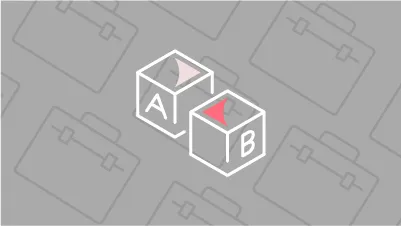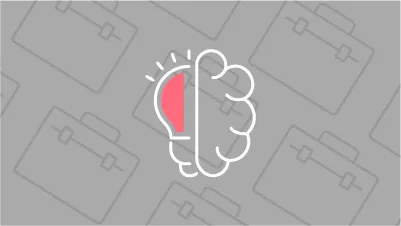All students are required to bring their own notebooks for lessons. You may refer to the required technical specifications for notebook HERE.
| REGISTRATION PERIOD APPLICATION CLOSED |
|||
| COURSE DATE | 20 Apr 2026 - 15 Oct 2028 | COURSE DURATION / FREQUENCY | 3 hours/session (3 days/week) |
| MODE OF LEARNING | Facilitated Learning (Face-to-Face/ Online Synchronous) and Asynchronous E-Learning | COURSE VENUE | Temasek Polytechnic |
Elevate your career with our Diploma in Business Practice (Business Administration). This part-time course is designed for mid-career professionals seeking to enhance their skills in business analysis management and people management. You will dive into market trend analysis and develop essential problem-solving techniques that are crucial for today’s dynamic business environment.
Through practical coursework, you will learn effective staff management strategies, preparing you to lead teams and drive organizational success. Equip yourself with the knowledge and skills to navigate complex business challenges and position yourself as a leader in your field!
| Subject Code | Subject | ||
|---|---|---|---|
| BCEC002 | Business Economics
This is a subject to equip students with the fundamental principles of economics for understanding the business environment. Students will study the various aspects of the product market: demand and supply, consumer theory, production and cost, market competition, market power, product differentiation, firms’ strategic behaviour and the macroeconomic environment. |
||
| BCPD001 | Business Environment
Business organisations operate in an environment that is becoming increasingly complex and competitive. Survival and prosperity of businesses go to those which are best able to adapt to the environment. This module aims to provide students with the knowledge and understanding of the political-legal, economic, social-cultural, technological environments of business. While the focus of the course is on the external environment, the module will also examine the company’s internal environment. |
||
| BCMK001 | Marketing Principles
This subject provides an introduction to marketing concepts and practices. It covers the marketing process and tools including product, pricing, distribution and promotion. An integrated approach will be employed to develop a range of skills such as strategic thinking, presentation and personal selling which are needed to sense, serve and satisfy customer needs. |
| Subject Code | Subject | ||
|---|---|---|---|
| BCAF003 | Business Accounting
This subject provides an understanding of basic accounting concepts and processes, and their applications in businesses. It includes the double-entry system of bookkeeping, preparation of financial statements, accounting for assets such as cash and inventories and the importance of controls over these assets, as well as analysis of financial statements using ratios. |
||
| BCLO001 | Business Statistics
The subject provides an introductory overview for descriptive and inferential statistics in the business environment. It includes data description, basic concepts of probability, regression and correlation, probability distributions, estimation and hypotheses testing. The subject also covers the use of scientific calculator and computer software application to perform statistical computations for data analysis. |
||
| BCPD002 | Problem-Solving Skills in Business
The subject equips participants with tools used in solving business problems and for decision making. Participants are taught how to identify the root causes of problems, select the problems to tackle, generate workable solutions and decide on the courses of action. Teaching contents include contemporary problem solving tools and critical/creative thinking skills that are fundamental to decision making. Participants walk away from this subject with a box of tools to solve problems and make decisions with confidence in a dynamic world of business. |
| Subject Code | Subject | ||
|---|---|---|---|
| BCBS001 | Principles of Management
This subject covers the key management functions of planning, organising, leading and controlling. It addresses the impact of environmental factors that affect business and the relevance of corporate social responsibility in an organisation. It emphasises the roles, responsibilities and challenges faced by supervisors/managers in an organisation. |
||
| BCLO002 | Operations Management
The subject covers fundamental concepts and techniques of operations management for both manufacturing and service organisations. The subject begins with identifying the quality requirements of the customers, followed by strategies to create value in the organisation through efficient production of goods and delivery of services, and application of quality management to support performance improvements. |
||
| BCAF004 | Management Accounting & Finance
This subject covers the general framework of the financial and cost management processes. It focuses on the use of accounting information for management planning, control and decision making through the understanding of costing and budgeting concepts. |
| Subject Code | Subject | ||
|---|---|---|---|
| BCBS003 | Organisational Behaviour
This subject provides participants with an understanding of the key determinants of human behaviour, at both the individual and group levels, in an organisation. It aims to develop the ability to use organisational behaviour concepts to improve personal, interpersonal and group interaction skills. Some of the topics are perception, motivation, reinforcement theory, group dynamics and conflict management. |
||
| BCBS004 | Human Resource Management
This subject provides participants with an awareness of the importance of HRM in an organisation. They will get an understanding of the various human resource management functions, the impact of effective HRM practices on organisational and employee performance and the role of line managers in HRM. Some of the topics are recruitment and selection, performance appraisal, training and development, the People Developer System and compensation management. |
||
| BCHT001 | Customer Service Management
This subject focuses on essential knowledge, skills and techniques required to provide service excellence and management of customer service. These will apply to frontline, internal support centre and contact centre environment. The module will also highlight the importance of ownership and empowerment in customer service. The module will study how organisational customer service philosophy impacts the entire customer service cycle. |
For more information on course fee / schedule, or to apply,
Entry Requirements
| ‘O’ Levels | At least 3 ‘O’ Level passes in the following subjects: English Language (EL1 or EL2) Grade 1 – 7 Any mathematics subject Grade 1 – 6 Any other subject Grade 1 – 6 AND 1 year of relevant working experience |
| OR | |
| Higher Nitec | GPA ≥ 2.0 |
| OR | |
GPA ≥ 1.5 AND 1 year of relevant working experience |
|
| OR | |
| Nitec | GPA ≥ 3.5 |
| OR | |
GPA ≥ 3.0 AND 1 year of relevant working experience |
|
| OR | |
| Higher Nitec in Technology | GPA ≥ 2.0 AND 1 year of relevant working experience |
| OR | |
| Higher Nitec in Service | GPA ≥ 2.0 AND 1 year of relevant working experience |
| OR | |
| Nitec in Technology | GPA ≥ 3.5 AND 1 year of relevant working experience |
| OR | |
| Nitec in Service | GPA ≥ 3.5 AND 1 year of relevant working experience |
| OR | |
| WSQ Qualification | Relevant WSQ Qualification with 1 year of relevant working experience AND WSQ Workplace Literacy Statement of Attainment (SOA)(Level 6) AND Workplace Numeracy Statement of Attainment (SOA)(Level 6) |
| OR | |
| Without relevant academic qualifications | At least 2 years of relevant working experience |
Applicants who do not meet the entry requirements may be considered for admission to the course based on evidence of at least 2 years of relevant working experience or supporting evidence of competency readiness. Suitable applicants who are shortlisted may have to go through an interview and/or entrance test. The Polytechnic reserves the right to shortlist and admit applicants.
Course Contact
- Mainline 67881212
-
Monday - Thursday: 8:30am - 6:00pm
Friday: 8:30am - 5:30pm
Closed during lunchtime, 12:00pm - 1:00pm
and on weekends and public holidays. - https://www.tp.edu.sg/tsa
-
Temasek SkillsFuture Academy (TSA)
Temasek Polytechnic
East Wing, Block 1A, Level 3, Unit 109
21 Tampines Ave 1
Singapore 529757
Temasek Polytechnic reserves the right to alter the course, modify the scale of fee, amend any other information or cancel course with low enrolment.
/D in Business Practice (Business Administration).webp)





/D in Business Practice (Logistic Management)_tn.webp)
/D in Engineering (OSM) Thumbnail.webp)




